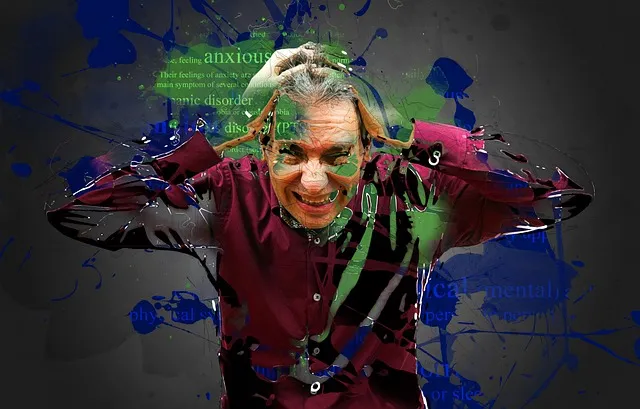Cultural competency training at Kaiser Permanente mental health locations in Centennial is transforming patient care by fostering inclusivity and understanding of diverse cultural backgrounds. This holistic approach equips healthcare providers with strategies to improve communication, adapt self-care, and offer tailored emotional support, leading to better treatment outcomes for all patients, especially those from underrepresented communities or facing trauma. By integrating evidence-based practices and continuous learning, Kaiser Permanente Centennial strengthens its commitment to equitable mental health services, addressing systemic barriers and promoting holistic well-being.
Healthcare provider cultural competency training is an essential aspect of modern healthcare delivery, especially in diverse communities. This article explores the critical need for cultural competency, focusing on mental health training at Kaiser Permanente locations. We delve into the impact of this initiative at various Centennial sites, highlighting strategies for effective training and long-term benefits that foster greater cultural sensitivity among healthcare staff. By understanding cultural competency, we aim to improve patient outcomes and bridge healthcare disparities.
- Understanding Cultural Competency in Healthcare: A Necessary Approach
- The Impact of Mental Health Training for Kaiser Permanente Staff
- Strategies for Effective Training at Centennial Locations
- Long-term Benefits and Continuous Improvement for Cultural Sensitivity
Understanding Cultural Competency in Healthcare: A Necessary Approach

Cultural competency is an essential aspect of healthcare that involves understanding and respecting diverse cultural backgrounds, beliefs, and practices among patients. In a country as culturally rich and varied as the United States, especially in regions like Centennial where Kaiser Permanente mental health locations serve diverse communities, healthcare providers must be equipped to deliver care that is sensitive and responsive to these differences.
This approach ensures that all patients receive quality, equitable care, fostering trust and improving outcomes. By integrating cultural competency training into their practices, healthcare providers can learn effective communication strategies, adapt self-care practices, and even incorporate emotional well-being promotion techniques that cater to the unique needs of each patient. This is particularly vital when addressing mental health issues, where positive thinking and holistic approaches can significantly impact treatment success.
The Impact of Mental Health Training for Kaiser Permanente Staff

For healthcare providers at Kaiser Permanente mental health locations in Centennial, training in cultural competency is transforming patient care. This specialized training equips staff with the knowledge and skills to understand and address the unique needs of a diverse range of patients, including those from underrepresented backgrounds or experiencing trauma. By integrating this training into their practices, Kaiser Permanente Centennial is not only enhancing its commitment to equitable care but also improving outcomes for patients navigating complex mental health challenges.
The impact extends beyond individual patient interactions. Mental Health Policy Analysis and Advocacy, coupled with Trauma Support Services, becomes more effective when healthcare providers are culturally competent. They can better advocate for policies that address systemic barriers to care, ensure access to care for all communities, and create a safer, more supportive environment where trauma survivors feel empowered to seek and receive the help they need. This holistic approach ultimately fosters a more inclusive and healing-focused mental health system.
Strategies for Effective Training at Centennial Locations

Centennial locations, such as Kaiser Permanente mental health centers, offer unique opportunities for cultural competency training. To make these sessions effective, organizers should employ diverse strategies tailored to the specific context. One key approach is to incorporate real-life scenarios that reflect the daily challenges faced by mental health professionals in these communities. By simulating encounters with patients from various cultural backgrounds, trainers can enhance role-playing exercises, allowing participants to practice communication strategies and build confidence in handling diverse cases.
Additionally, integrating Risk Management Planning for Mental Health Professionals ensures a comprehensive training experience. This includes educating staff on cultural nuances related to mental health expression, as well as effective de-escalation techniques. Training should also emphasize the Mind Over Matter Principles, fostering an environment where professionals can learn to manage their own stress and emotional well-being while providing compassionate care to patients from diverse backgrounds.
Long-term Benefits and Continuous Improvement for Cultural Sensitivity

Cultural competency training for healthcare providers is an ongoing process that yields significant long-term benefits. By fostering a deeper understanding and appreciation for diverse cultural backgrounds, healthcare organizations like Kaiser Permanente’s mental health locations in Centennial can create more inclusive environments. This promotes better patient-provider communication, increased access to care, and improved outcomes. Patients from various cultural communities are more likely to seek help and adhere to treatment plans when they feel understood and respected.
Continuous improvement in cultural sensitivity is crucial for addressing the unique needs of each community. Training programs should incorporate evidence-based practices, such as teaching stress management and emotional regulation techniques, especially given the impact of trauma and systemic barriers on mental health. By empowering providers with effective communication tools and an expanded knowledge base, Kaiser Permanente can ensure its mental health services are accessible and tailored to the diverse needs of its clientele in Centennial and beyond. This not only enhances patient satisfaction but also contributes to a more equitable healthcare system overall.
Cultural competency training in healthcare, as exemplified by initiatives at Kaiser Permanente’s various locations, including Centennial, is a powerful tool for improving patient outcomes and fostering inclusive care. The long-term benefits of such programs extend beyond the walls of medical facilities, promoting better mental health and cultural sensitivity within communities. By investing in comprehensive training, organizations like Kaiser Permanente can revolutionize healthcare delivery, ensuring every patient receives respectful, culturally competent care tailored to their unique needs.






